Quantum Computing Research
Xiantao Li's Group, Department of Mathematics, Penn State University
About Us
Quantum computing harnesses unique properties of quantum mechanics, such as entanglement and superposition, to offer capabilities exceeding conventional supercomputers. Our overarching objective is to devise rigorous, efficient quantum algorithms tailored for scientific computing, addressing problems that remain intractable for classical methods.
Our Research
Hamiltonian Simulations
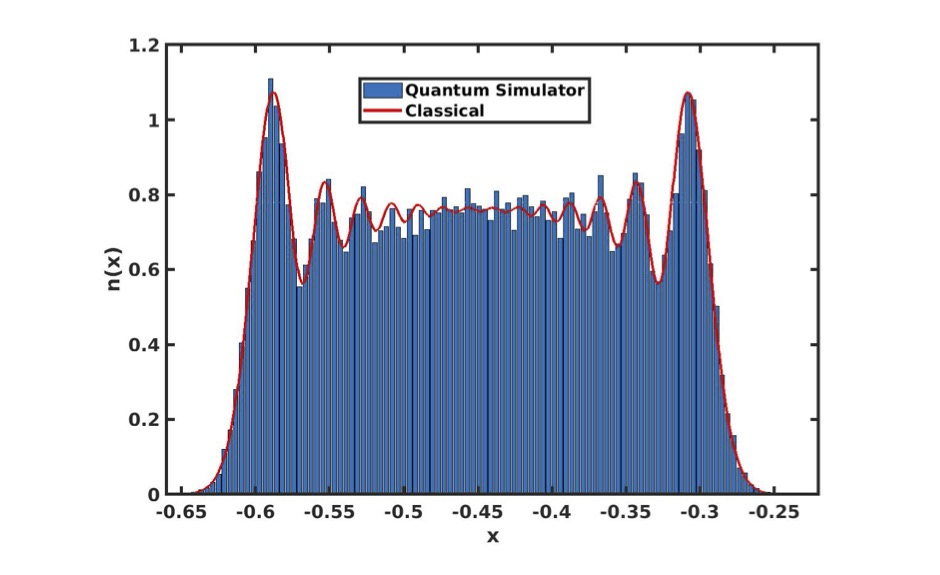
We develop efficient quantum circuits to implement the unitary evolution U = e-iHt. These algorithms serve as the fundamental building blocks for simulating quantum dynamics and solving ground state problems in chemistry and physics.
Open Quantum Systems
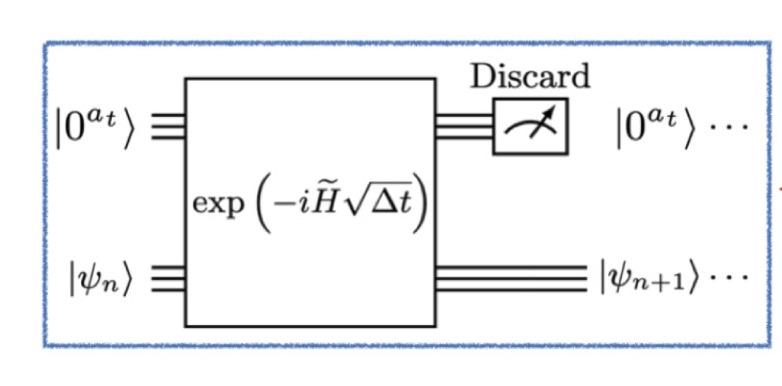
Real-world quantum devices are inherently noisy. We design algorithms to simulate Lindblad master equations and non-Markovian dynamics, bridging the gap between ideal theoretical models and current NISQ hardware.
Applications to Material Science
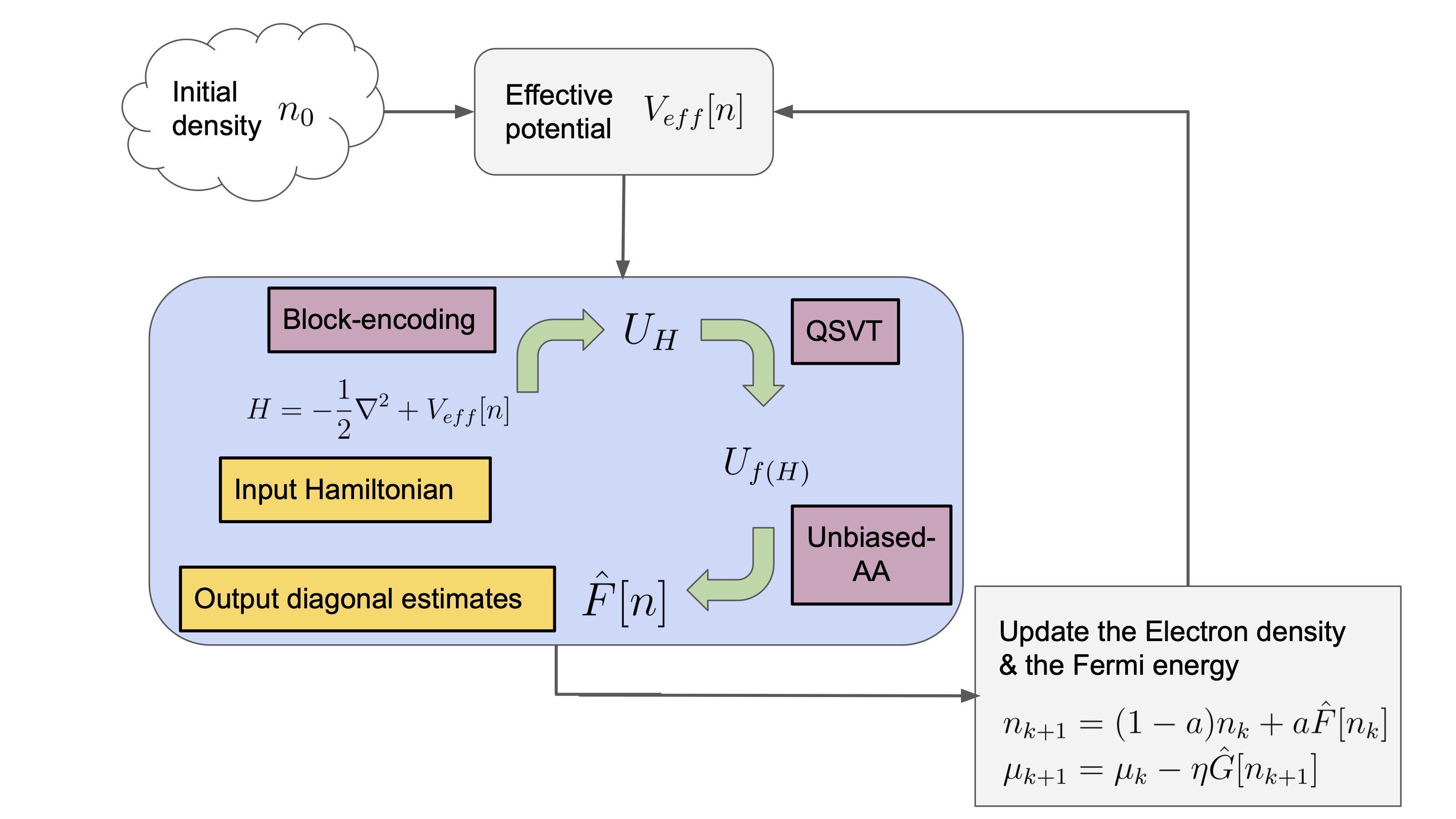
We apply quantum algorithms to Density Functional Theory (DFT) and electronic structure problems. Our goal is to enable first-principle calculations that predict material properties with precision surpassing classical approximations.
Quantum Algorithms for PDEs
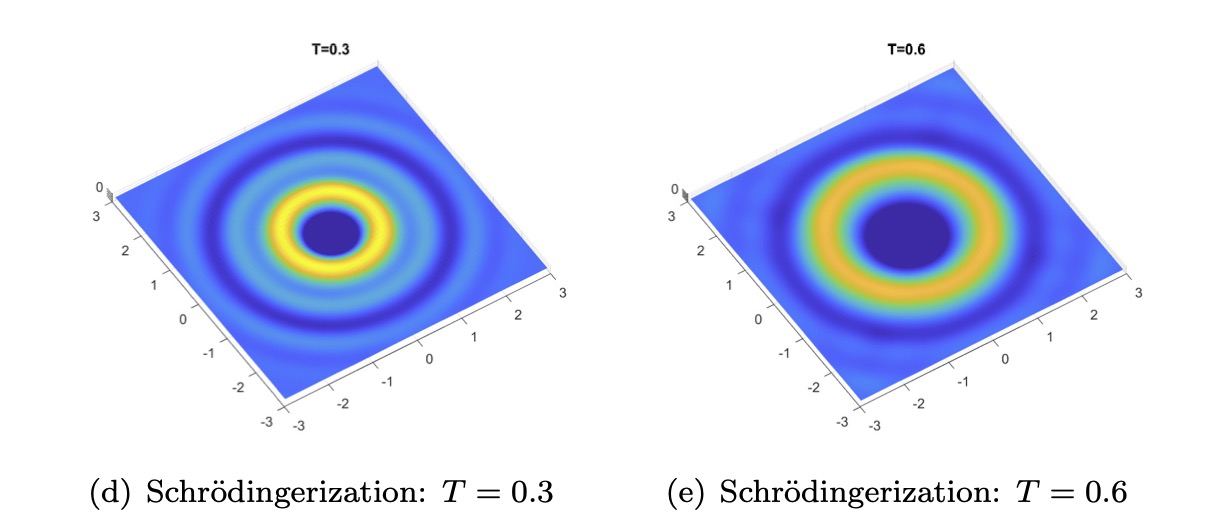
We create quantum solvers specifically designed for high-dimensional Partial Differential Equations (PDEs). Our work utilizes techniques like Schrödingerisation to map classical fluid and wave dynamics onto quantum processors.
Learning Open Quantum Systems
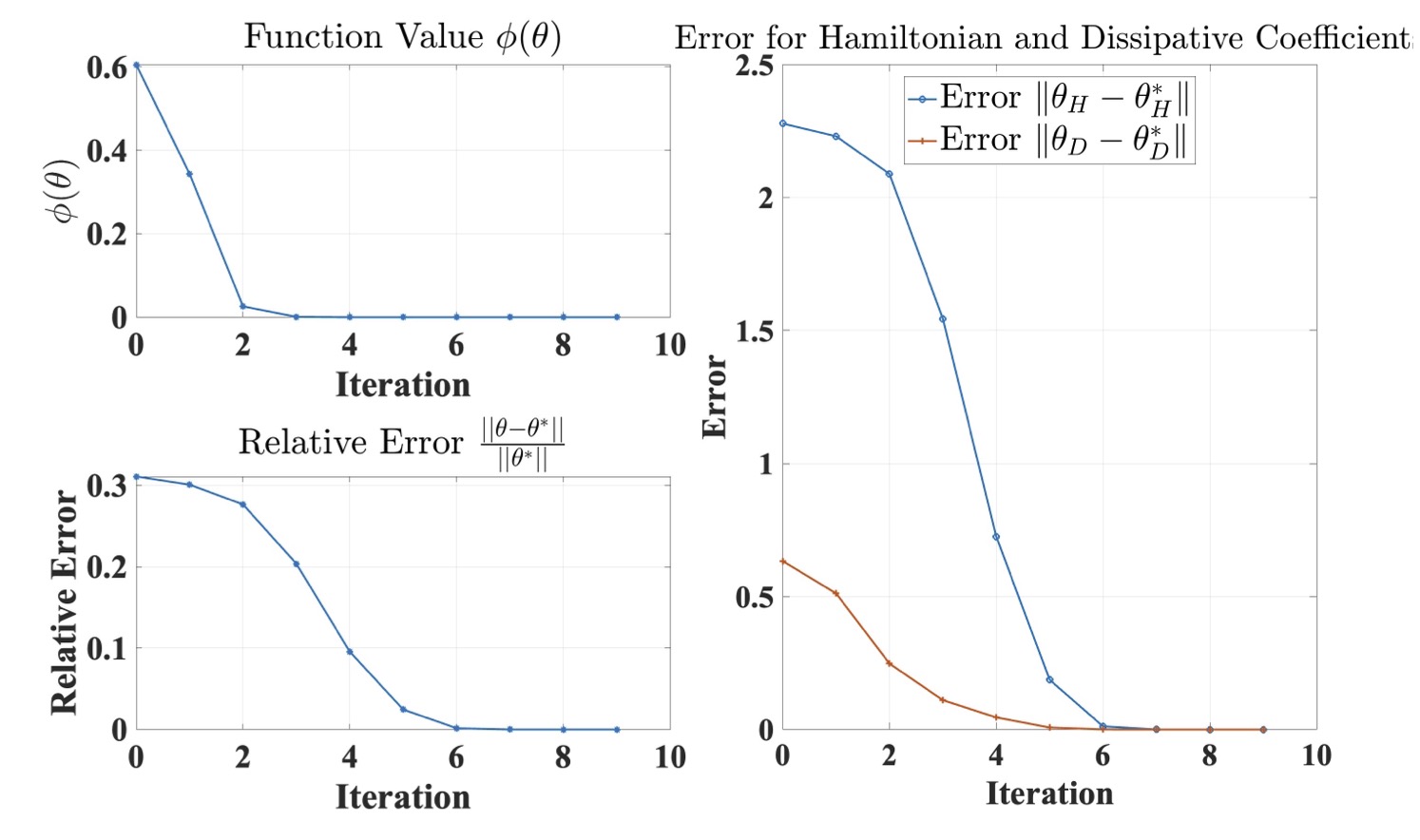
We construct Quantum System Identification methods. Using measurement data, these algorithms infer Hamiltonian interactions and dissipative parameters, enabling better calibration and control of quantum devices.
Quantum Statistical Sampling
We leverage quantum walks and amplitude amplification to accelerate Markov Chain Monte Carlo (MCMC) methods. Our algorithms aim to reduce mixing times and improve sampling efficiency for complex optimization landscapes.
Quantum Error Mitigation

To address hardware noise, we develop rigorous mathematical frameworks for error mitigation. This includes Non-Markovian Quantum Error Mitigation (QEM) and the theoretical analysis of Zero-Noise Extrapolation (ZNE) using polynomial extrapolation methods.
Quantum Machine Learning

Our work focuses on the convergence of hybrid quantum-classical algorithms. We proposed the random coordinate descent method, analyzed hybrid convergence, and developed Hamiltonian diagonalization algorithms for fast-forwarding dynamics.
Quantum Stochastic Simulations
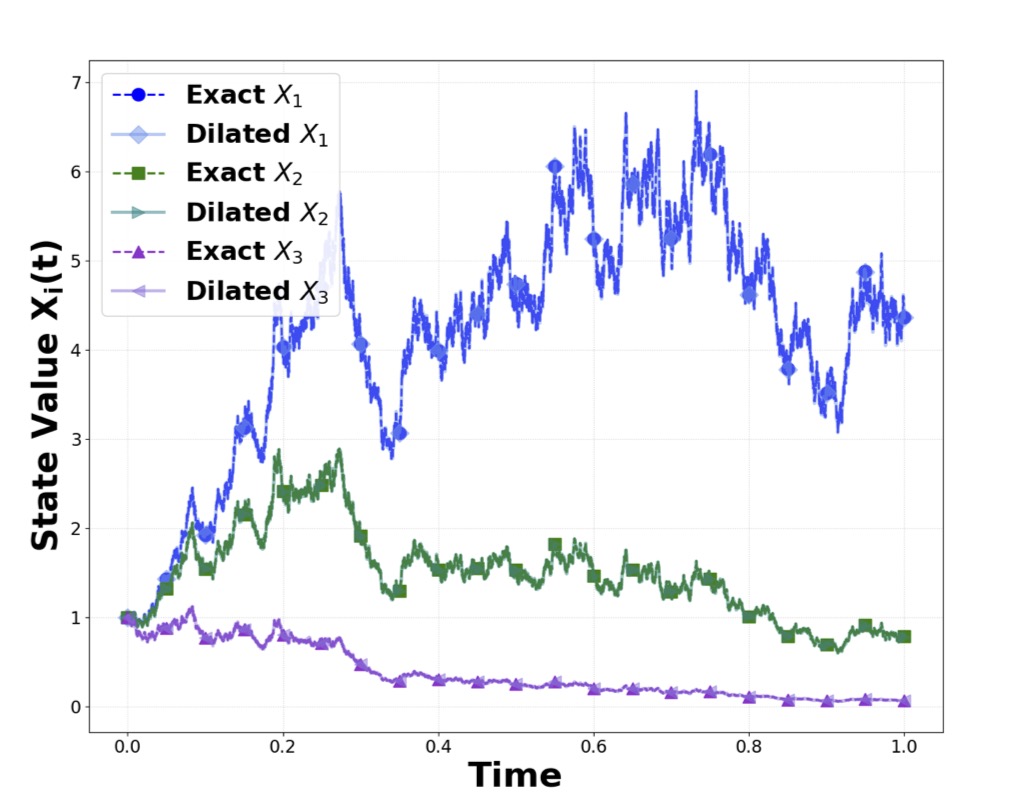
We have developed unitary dilation frameworks for simulating Linear Stochastic Differential Equations (SDEs). These methods allow for the rigorous propagation of 2nd-order statistics and the simulation of diffusive dynamics directly on quantum circuits.
Funding Support
NSF: "Optimal Control of Open Quantum Systems", $395,291, 2021--2025
ICDS: "Machine-Learning with Quantum Speedup", $30,000, 2023
NSF: "An Integrated Framework for Optimal Control for Open Quantum Systems", $600,000, 2023--2026
NSF: "Improving quantum speedup for solving differential equations", $300,000, 2024--2027
ICDS Superseed Grant: "Open Quantum Systems Beyond Markovianity: Building a Cross-Disciplinary Community", $199,440.
Publications
- Hsuan-Cheng Wu and Xiantao Li, Universal Dilation of Linear Itô SDEs: Quantum Trajectories and Lindblad Simulation of Second Moments, preprint, 2026.
- Xiantao Li and Chunhao Wang, Quantum Regression Theory and Efficient Computation of Response Functions for Non-Markovian Open Systems, preprint, 2025.
- Yu Cao, Mingfeng He, Xiantao Li, Dynamically Optimal Unraveling Schemes for Simulating Lindblad Equations, preprint, 2025.
- Pinchen Xie, Ke Wang, Anupam Mitra, Yuanran Zhu, Xiantao Li, Wibe Albert de Jong, Chao Yang, Predict open quantum dynamics with data-informed quantum-classical dynamics, Physical Review Letters, Vol 136, 010402, 2026.
- Pegah Mohammadipour and Xiantao Li, Reducing Circuit Depth in Lindblad Simulation via Step-Size Extrapolation, Physical Review A, 2025.
- Xiantao Li, From Linear Differential Equations to Unitaries: A Moment-Matching Dilation Framework with Near-Optimal Quantum Algorithms, preprint, 2025.
- Taehee Ko, Sangkook Choi, Hyowon Park, Xiantao Li, Classical optimization algorithms for diagonalizing quantum Hamiltonians, Physica Scripta, 2025.
- Xiantao Li, Exponential Quantum Speedup for Simulating Classical Lattice Dynamics, Physical Review Letters, Accepted, 2025.
- Guneykan Ozgul, Xiantao Li, Mehrdad Mahdavi, Chunhao Wang, Quantum Speedups for Markov Chain Monte Carlo Methods with Application to Optimization, preprint, 2025.
- Pegah Mohammadipour and Xiantao Li, Direct Analysis of Zero-Noise Extrapolation: Polynomial Methods, Error Bounds, and Simultaneous Physical-Algorithmic Error Mitigation, Quantum, 9, 1909, 2025.
- Ke Wang and Xiantao Li, Non-Markovian Noise Mitigation: Practical Implementation, Error Analysis, and the Role of Environment Spectral Properties, preprint, 2025.
- Zhenning Liu, Xiantao Li, Chunhao Wang, and Jin-Peng Liu, Toward end-to-end quantum simulation for protein dynamics, preprint, 2024.
- Hsuan-Cheng Wu and Xiantao Li, Structure-preserving quantum algorithms for linear and nonlinear Hamiltonian systems, preprint, 2024.
- Hsuan-Cheng Wu, Jiayao Wang and Xiantao Li, Quantum Algorithms for Nonlinear Dynamics: Revisiting Carleman Linearization with No Dissipative Conditions, SIAM Journal on Scientific Computing, 2025.
- Wenhao He, Tongyang Li, Xiantao Li, Zecheng Li, Chunhao Wang and Ke Wang, Efficient Optimal Control of Open Quantum Systems, TQC, 2024.
- Zhiyan Ding, Xiantao Li and Lin Lin, Simulating Open Quantum Systems Using Hamiltonian Simulations, PRX Quantum, 5, 020332, 2024.
- Zhiyan Ding, Taehee Ko, Jiahao Yao, Lin Lin, and Xiantao Li, Random coordinate descent: a simple alternative for optimizing parameterized quantum circuits, Physical Review Research, 2024.
- Guneykan Ozgul, Xiantao Li, Mehrdad Mahdavi, Chunhao Wang, Stochastic Quantum Sampling for Non-Logconcave Distributions and Estimating Partition Functions, ICML, 2024.
- Taehee Ko, Chunhao Wang, and Xiantao Li, Implementation of the Density-functional Theory on Quantum Computers with Linear Scaling with respect to the Number of Atoms, QEC, 2024.
- Ke Wang and Xiantao Li, Simulation-assisted learning of open quantum systems, Quantum, 2024.
- Shi Jin, Nana Liu, Yue Yu, and Xiantao Li, Quantum Simulation for Partial Differential Equations with Physical Boundary or Interface Conditions, Journal of Computational Physics, Vol 498, 112707, 2024.
- Shi Jin, Nana Liu, Yue Yu, and Xiantao Li, Quantum Simulation for Quantum Dynamics with Artificial Boundary Condition, SIAM Journal on Scientific Computing, 2024.
- Xiantao Li and Chunhao Wang, Efficient Quantum Algorithms for Quantum Optimal Control, ICML, 2023.
- Xiantao Li and Chunhao Wang, Efficient Simulating Markovian open quantum systems using higher-order series expansion, ICALP, 2023.
- Xiantao Li, Enabling Quantum Speedup of Markov Chains using a Multi-level Approach, Preprint, 2022.
- Shi Jin, Nana Liu, and Xiantao Li, Hamiltonian Simulation in the semi-classical regime, Quantum, Vol 6, pp 739, 2022.
- Xiantao Li, Some Error Analysis for the Quantum Phase Estimation Algorithms, Journal of Physics A: Mathematical and Theoretical, 2022.
- Xiantao Li and Chunhao Wang, Succinct Description and Efficient Simulation of Non-Markovian Open Quantum Systems, Communications in Mathematical Physics, Vol 401, pages 147–183, 2023.
- Shi Jin and Xiantao Li, A Partially Random Trotter Algorithm for Quantum Hamiltonian Simulations, Communications on Applied Mathematics and Computation, 2023.
Our Team
Xiantao Li
Professor, Penn State
Hsuan-Cheng Wu
Graduate Student
Taehee Ko
Graduate Student
Ke Wang
Graduate Student
Pegah Mohammadipour
Graduate Student
Ryan Cohen
Undergraduate Student
George Klimov
Undergraduate Student
Loc Phan
Undergraduate Student